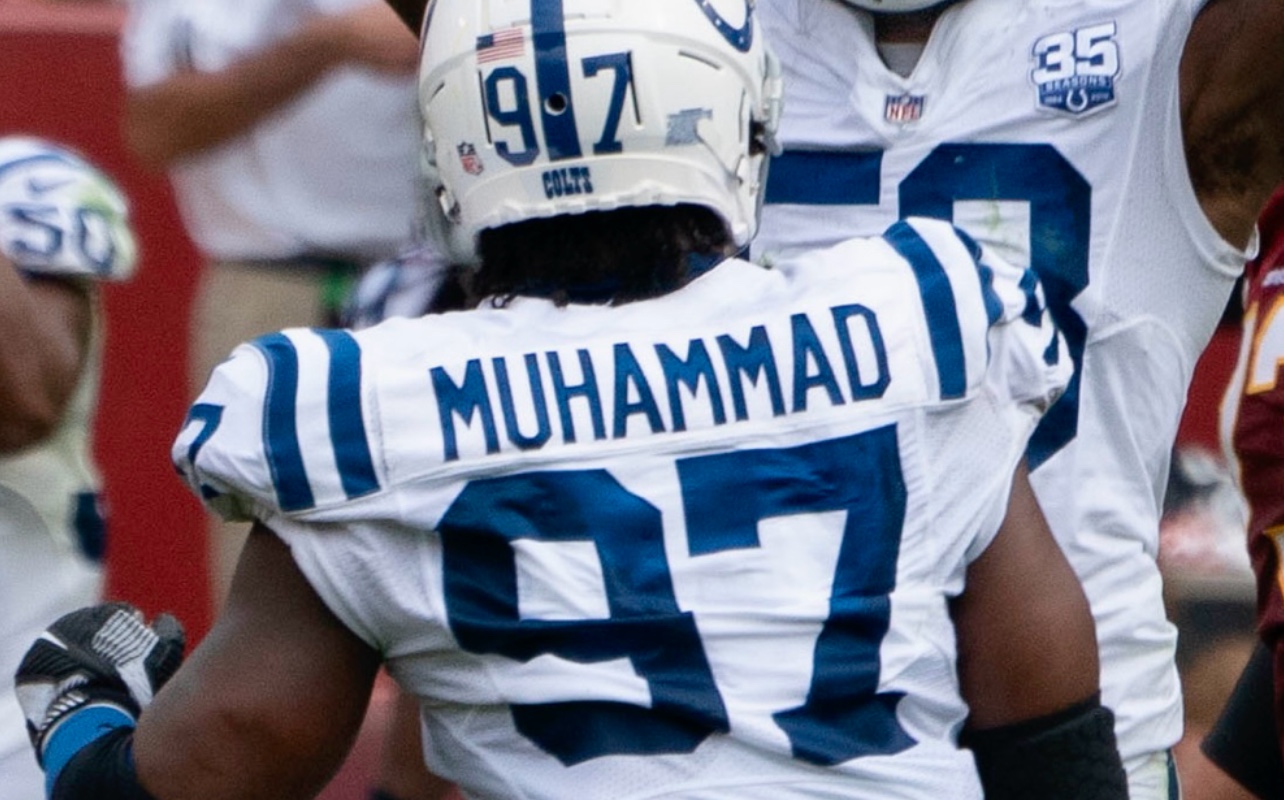
July 14, 2024
NFL Veteran Al-Quadin Muhammad Honored With Key To The City From Newark, NJ, For Community Impact
'I’ve learned a lot of great things and I’ve done a lot of great things in giving back to the community, the kids in Newark, just to let them know that they can be successful, and they can make it out,' Muhammad said.
On July 12, the City of Newark, New Jersey honored eight-year NFL veteran Al-Quadin Muhammad with the key to the city to honor both his success on the football field and his generosity to the youth of Newark. Muhammad, who starred at Paterson Catholic School and Don Bosco Prep Academy before taking his talents to the University of Miami, is a hometown hero.
According to Pix 11, Benjie Wimberly, New Jersey State Assemblyman and a former coach of Muhammad at Paterson Catholic, part of the reason Muhammad received the honor is his commitment to letting the kids in Newark know that if he made it out, they can too. The player hosts an annual youth camp for local kids.
“What he’s given back to the Newark community and even kids from Paterson who still know who Quan is, that is the most important thing I can say.” Wimberly told the outlet.
According to Muhammad, the camp, which has taken place since he was drafted by the New Orleans Saints in 2017, is still ongoing even though he is currently a free agent. And, the camp has become an outlet for hundreds of Black youth in Newark, which is 47.03% Black, according to World Population Review.
But Newark was not always a majority Black city, according to Newark Changing. Like many cities in the northern part of the country, the demographics of Newark were altered by two phenomena during the 1960s: The Great Migration and white flight.
“At least six million Blacks fled from poverty, unemployment, and racial tensions in the south to northern cities they hoped would be better. As internal immigrants within America and as a people at the bottom of the class system, these Blacks settled in the same Newark neighborhoods as earlier generations of white immigrants. Many of Belmont’s Jewish synagogues and Catholic churches were soon sold off and given new life as Black Baptist congregations,” according to Newark Changing.
According to History Reads, Newark, similar to Detroit in 1967, underwent an uprising centered on the abuses of its Black residents at the hands of the police. Newark’s uprising ended about a week before Detroit’s began, and the two events signaled to President Lyndon B. Johnson that there was a larger problem, which was further examined via the 1967 Kerner Report on Urban Riots commissioned by the Johnson Administration.
“Now, five decades later, we are locked in the same old, stale arguments about the causes of riots. Liberals blame poverty and the need for massive federal spending; conservatives fault a lack of respect for authority and the need for tough law enforcement. Neither side has been willing to acknowledge that the disturbances are often justified, or that well-intended but poorly trained police officers sometimes turn minor disputes into major incidents of rebellion,” noted Steven M. Gillon, a senior fellow at the Miller Center at the University of Virginia and a professor of history at the University of Oklahoma, in a 2018 essay for History.
Muhammad, through his camp and inspiration, is addressing the challenges Newark youth still face.
“The camp is still going, I do a camp every year,” Muhammad told Pix 11. “What I would like to accomplish is letting kids in the city and all over, no matter where they come from, that they can be successful and they could do the same thing I’m doing, and more, and better, no matter the circumstances. Anything you want to accomplish or anything you want to achieve you got to consistently work at it on a daily basis.”
Muhammad continued, “I’ve learned a lot of great things and I’ve done a lot of great things in giving back to the community, the kids in Newark, just to let them know that they can be successful, and they can make it out.”
RELATED CONTENT: Mayor Ras J. Baraka Launches ‘Newark 40 Acres and a Mule’ Investment Fund To Support Black Businesses